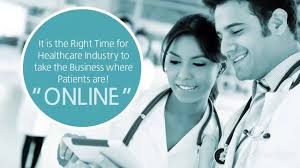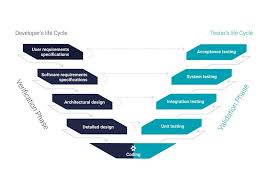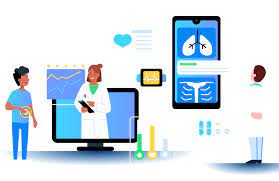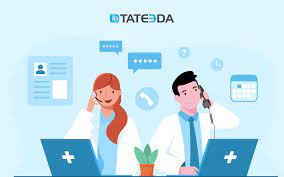Title: Harnessing the Power of Healthcare Digital Marketing for a Better Future
Introduction:
In today’s digital age, healthcare providers are recognizing the immense potential of digital marketing to revolutionize their industry. With the increasing use of technology and the internet, healthcare digital marketing has emerged as a powerful tool to reach a wider audience, enhance patient engagement, and improve overall healthcare outcomes. Let’s delve into the world of healthcare digital marketing and explore its benefits and implications.
Enhancing Patient Engagement:
Digital marketing enables healthcare providers to connect with patients on various online platforms. Through engaging content, personalized emails, and social media interactions, providers can educate patients about preventive care, promote healthy lifestyles, and raise awareness about specific conditions. This level of engagement fosters trust and loyalty while empowering patients to take an active role in managing their health.
Expanding Reach and Visibility:
Digital marketing allows healthcare organizations to reach a broader audience beyond their physical locations. Through search engine optimization (SEO), paid advertising campaigns, and targeted content creation, providers can increase their online visibility and attract potential patients who may not have been aware of their services otherwise. This expanded reach helps bridge geographical gaps and ensures that quality care is accessible to more people.
Building Trust through Thought Leadership:
By sharing valuable insights through blogs, articles, videos, or podcasts, healthcare professionals can establish themselves as trusted experts in their respective fields. This thought leadership not only enhances brand reputation but also creates opportunities for collaborations with other industry leaders or media outlets. Patients are more likely to choose providers they perceive as knowledgeable authorities in their areas of expertise.
Personalized Communication:
Digital marketing allows for personalized communication with patients through email newsletters or targeted advertising campaigns based on individual preferences or medical history. These tailored messages can educate patients about upcoming appointments, remind them about medication schedules or preventive screenings, and provide relevant health-related information based on their specific needs. Such personalized communication strengthens patient-provider relationships and improves overall patient satisfaction.
Leveraging Social Media:
Social media platforms have become powerful tools for healthcare organizations to engage with patients, share educational content, and address common queries. Through social media, providers can foster a sense of community, encourage patient testimonials or success stories, and even offer virtual support groups for patients with similar conditions. Social media also plays a vital role in crisis management by disseminating accurate information during public health emergencies.
Data-Driven Decision Making:
Digital marketing provides healthcare organizations with valuable data insights that can drive strategic decision-making. By analyzing website traffic, online engagement metrics, or patient feedback, providers can gain a better understanding of their target audience’s needs and preferences. This data-driven approach helps optimize marketing strategies, improve patient experience, and allocate resources effectively.
Conclusion:
Healthcare digital marketing has the potential to transform the way healthcare is delivered and received. By embracing digital platforms and leveraging the power of technology, healthcare providers can connect with patients on a deeper level, expand their reach, build trust, and ultimately improve health outcomes. As the digital landscape continues to evolve rapidly, it is essential for healthcare organizations to stay abreast of emerging trends and adapt their marketing strategies accordingly to ensure a brighter future for all involved.
5 Essential Tips for Healthcare Digital Marketing Success
- Focus on providing useful and relevant content
- Optimize for search engine visibility
- Use social media to engage with audiences
- Utilize email marketing campaigns
- Monitor analytics regularly
Focus on providing useful and relevant content
In the ever-evolving landscape of healthcare digital marketing, one tip stands out as a guiding principle: focus on providing useful and relevant content. In a world inundated with information, consumers are seeking valuable resources that can help them make informed decisions about their health.
By prioritizing the creation of content that is both useful and relevant, healthcare providers can establish themselves as trusted sources of information. This approach goes beyond simply promoting services or products; it involves educating and empowering patients to take charge of their own well-being.
Useful content addresses common health concerns, offers practical tips for healthy living, and provides guidance on navigating the healthcare system. By addressing these topics, providers can position themselves as allies in their patients’ wellness journey.
Relevant content, on the other hand, speaks directly to the specific needs and interests of the target audience. It takes into account demographic factors, medical conditions, and current trends in healthcare. By tailoring content to resonate with patients’ unique circumstances, providers can foster a deeper connection and build trust.
When creating content for healthcare digital marketing efforts, it’s important to consider various formats such as blog articles, videos, infographics, or podcasts. This allows for diverse ways of engaging with different types of audiences.
Furthermore, optimizing content for search engines using appropriate keywords helps ensure that it reaches those who are actively seeking information related to specific health topics. This increases visibility and drives organic traffic to provider websites or social media platforms.
By focusing on providing useful and relevant content in healthcare digital marketing strategies, providers can establish themselves as authorities in their respective fields while nurturing meaningful relationships with patients. This approach fosters patient engagement, builds trust, and ultimately contributes to improved health outcomes for individuals and communities alike.
Optimize for search engine visibility
In the ever-expanding digital landscape, optimizing your healthcare digital marketing efforts for search engine visibility is crucial. With the majority of people turning to search engines like Google to find healthcare information and providers, ensuring that your website appears prominently in search results can significantly impact your online presence and patient acquisition. Let’s explore why optimizing for search engine visibility is vital in healthcare digital marketing.
When potential patients search for healthcare services or relevant medical information, appearing on the first page of search results increases your chances of being noticed and chosen. By implementing effective search engine optimization (SEO) strategies, you can improve your website’s ranking and visibility, ultimately driving more organic traffic to your site.
To optimize for search engine visibility, start by conducting keyword research to identify the specific terms patients are using when searching for healthcare services you offer. Incorporate these relevant keywords naturally throughout your website’s content, including in page titles, headings, meta descriptions, and body text. This helps search engines understand the relevance of your content and improves its chances of appearing higher in search results.
Creating high-quality content that addresses common patient queries or concerns is another effective way to optimize for search engine visibility. By providing valuable and informative content through blogs, articles, or FAQs on your website, you not only establish yourself as an authoritative source but also increase the likelihood of attracting organic traffic from individuals seeking answers to their health-related questions.
Optimizing technical aspects of your website is equally important. Ensure that your site loads quickly, as slow-loading websites can negatively impact both user experience and search engine rankings. Additionally, make sure your website is mobile-friendly since a significant portion of searches now occur on mobile devices.
Building a strong network of backlinks from reputable healthcare websites can also boost your search engine visibility. Seek opportunities to collaborate with other organizations or professionals in the industry to create guest blog posts or participate in interviews that link back to your website. These backlinks signal credibility and authority to search engines, improving your website’s ranking.
Regularly monitoring your website’s performance using analytics tools is essential to track the effectiveness of your SEO efforts. Analyze data such as organic traffic, bounce rates, and conversion rates to identify areas for improvement and refine your strategies accordingly.
In the competitive healthcare digital marketing landscape, optimizing for search engine visibility is a powerful way to increase your online presence, attract more patients, and establish yourself as a trusted healthcare provider. By understanding and implementing effective SEO strategies, you can enhance your website’s visibility in search results and ultimately drive meaningful engagement with potential patients.
Use social media to engage with audiences
In the ever-evolving world of healthcare digital marketing, one tip that stands out is the effective use of social media platforms to engage with audiences. Social media has become an integral part of our daily lives, and leveraging its power can significantly impact healthcare organizations’ online presence and patient engagement.
Social media platforms such as Facebook, Twitter, Instagram, LinkedIn, and YouTube offer unique opportunities to connect with patients, share valuable information, and foster meaningful relationships. Here’s why using social media to engage with audiences is a game-changer in healthcare digital marketing:
- Building a Community: Social media allows healthcare providers to create a sense of community by connecting with patients, caregivers, and other stakeholders. By sharing informative content, inspirational stories, or engaging in conversations about health-related topics, providers can establish themselves as trusted sources of information and support.
- Educational Content: Social media provides an excellent platform for sharing educational content in various formats such as articles, videos, infographics, or live sessions. By disseminating accurate and relevant information about diseases, preventive care measures, or treatment options, healthcare organizations can empower their audience to make informed decisions about their health.
- Real-Time Communication: Social media enables instant communication between healthcare providers and patients. Patients can ask questions or seek clarifications about their health concerns directly through comments or private messages. Timely responses from providers not only address patient queries but also demonstrate care and attentiveness towards individual needs.
- Patient Testimonials: Positive patient experiences shared on social media platforms can be incredibly influential in attracting new patients. Encouraging satisfied patients to share their stories or testimonials creates social proof that builds trust among potential patients who are considering your services.
- Health Campaigns and Awareness: Social media provides an ideal platform for launching health campaigns and raising awareness about specific conditions or public health issues. Providers can collaborate with influencers or partner organizations to amplify the reach of these campaigns through hashtags or viral challenges, thereby making a significant impact on public health.
- Crisis Management: During public health emergencies or outbreaks, social media becomes a vital tool for disseminating accurate information promptly. Healthcare organizations can use their social media channels to address concerns, debunk myths, and provide updates to ensure that the public receives reliable information from trusted sources.
- Feedback and Insights: Social media platforms allow healthcare providers to gather valuable feedback and insights from their audience. By monitoring comments, reviews, or engagement metrics, organizations can gain insights into patient preferences, needs, and areas for improvement. This data-driven approach helps refine marketing strategies and enhance patient experience.
In conclusion, social media has become an indispensable tool for healthcare digital marketing. By utilizing these platforms effectively, healthcare organizations can engage with audiences in meaningful ways that build trust, educate patients, foster community support, and ultimately improve health outcomes. Embracing social media as part of a comprehensive digital marketing strategy can open doors to new opportunities and strengthen the connection between healthcare providers and their patients.
Utilize email marketing campaigns
In the realm of healthcare digital marketing, one powerful tool that should not be overlooked is email marketing campaigns. With the ability to reach a wide audience directly in their inbox, email marketing offers numerous benefits for healthcare providers looking to engage with patients and enhance their overall marketing strategy.
First and foremost, email marketing allows for personalized communication. By segmenting your patient database based on various criteria such as demographics, medical history, or preferences, you can tailor your messages to specific groups. This personalization creates a sense of individualized care and fosters stronger patient-provider relationships.
Moreover, email marketing campaigns enable healthcare organizations to deliver timely and relevant information to their patients. Whether it’s reminders about upcoming appointments, notifications about new services or treatments, or educational content on specific health topics, emails provide a direct channel to keep patients informed and engaged. By providing valuable information through these campaigns, healthcare providers can position themselves as trusted sources of knowledge.
Another advantage of utilizing email marketing in healthcare is its cost-effectiveness. Compared to traditional forms of advertising, such as print or television ads, email campaigns are relatively inexpensive to create and distribute. This makes it an ideal solution for healthcare organizations operating within limited budget constraints.
Furthermore, the data generated from email marketing campaigns can provide valuable insights into patient behavior and preferences. By tracking open rates, click-through rates, and conversions, you can gain a better understanding of what types of content resonate with your audience. This data-driven approach allows you to refine your future campaigns for optimal engagement and results.
However, it’s essential to remember that successful email marketing requires careful planning and execution. Building a clean and targeted email list is crucial to ensure that your messages reach the right people. Additionally, crafting compelling subject lines and engaging content is key to capturing the attention of busy individuals who receive numerous emails daily.
In conclusion, incorporating well-designed email marketing campaigns into your healthcare digital marketing strategy can yield significant benefits. From personalized communication to cost-effectiveness and data-driven insights, email marketing allows healthcare providers to connect with patients on a deeper level and deliver valuable information directly to their inboxes. By harnessing the power of email, you can enhance patient engagement, build trust, and ultimately improve the overall effectiveness of your healthcare marketing efforts.
Monitor analytics regularly
In the ever-evolving world of healthcare digital marketing, one crucial tip stands out: monitor analytics regularly. Analytics provide valuable insights into the performance of your online marketing efforts and help you make informed decisions to optimize your strategies.
By regularly monitoring analytics, you gain a deeper understanding of how your website, social media campaigns, email marketing, and other digital channels are performing. Metrics such as website traffic, click-through rates, conversion rates, and engagement levels offer valuable information about user behavior and preferences.
Analyzing these metrics allows you to identify areas that need improvement or adjustment. For example, if you notice a high bounce rate on certain web pages, it may indicate that the content is not engaging enough or that there are technical issues. By addressing these concerns promptly, you can enhance user experience and increase the chances of converting visitors into patients or clients.
Regularly monitoring analytics also helps you track the success of specific marketing campaigns or initiatives. By comparing data before and after implementing a campaign, you can determine its impact on key performance indicators. This information allows you to fine-tune your strategies for better results in the future.
Moreover, analytics provide insights into your target audience’s demographics, interests, and online behavior. This knowledge helps you tailor your content and messaging to resonate with your audience effectively. By understanding what drives engagement and conversions among your target audience, you can create more targeted campaigns that yield higher returns on investment.
In addition to optimizing current strategies, analytics can also guide future decision-making. By identifying trends and patterns in user behavior over time, you can anticipate shifts in demand or preferences. This foresight enables you to adapt your digital marketing approach proactively and stay ahead of the curve.
Ultimately, monitoring analytics regularly empowers healthcare organizations to make data-driven decisions that lead to more effective digital marketing efforts. It allows for continuous improvement by identifying areas for optimization while providing insights into audience preferences and behavior.
In today’s fast-paced digital landscape, staying on top of analytics is crucial for healthcare providers looking to maximize the impact of their digital marketing initiatives. By leveraging these insights, you can enhance patient engagement, drive conversions, and ultimately achieve better healthcare outcomes.




